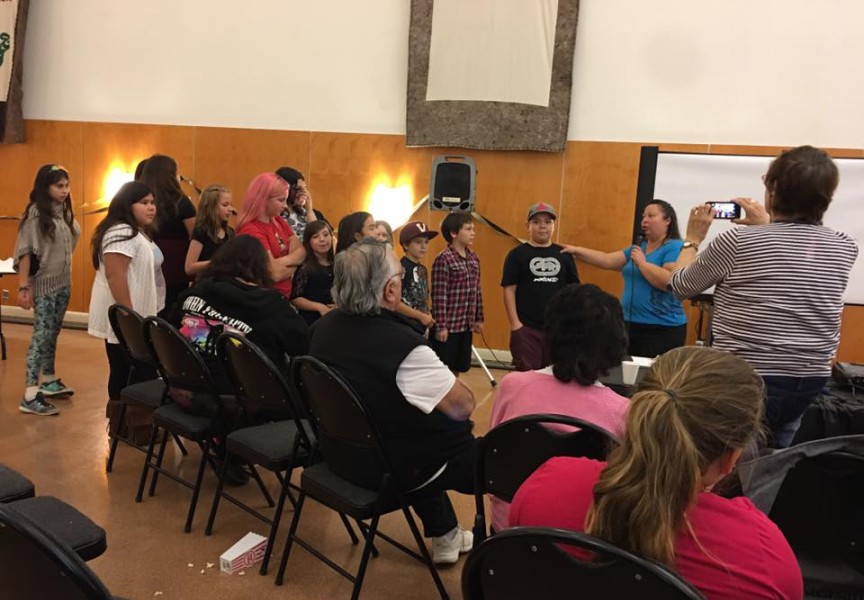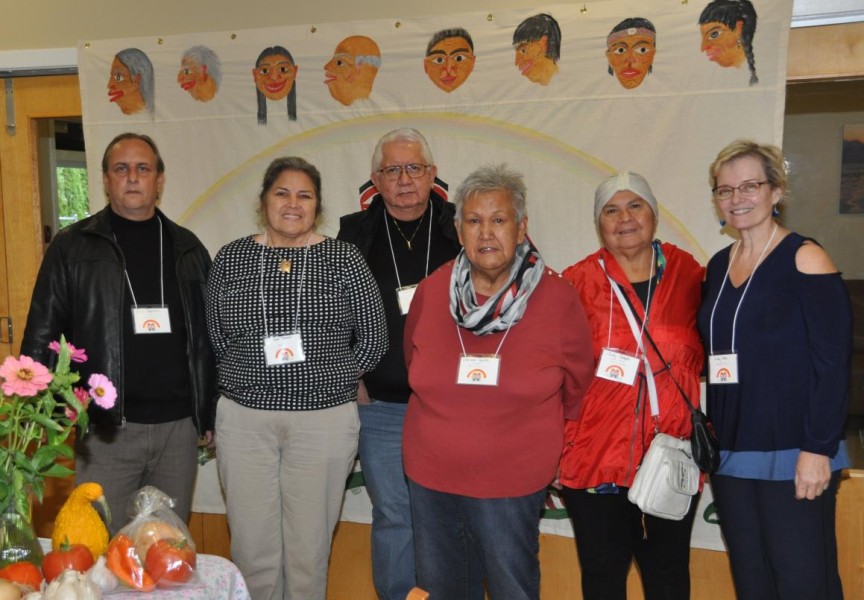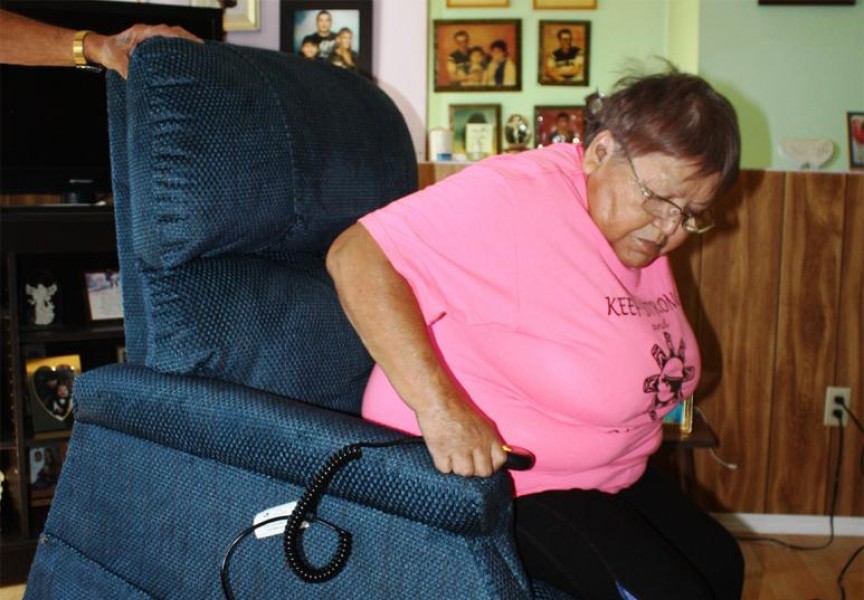Victoria Watts, manager for Health Promotion and Social Development, has served as the Nuu-chah-nulth Community Engagement Hub Coordinator as part of her position for the past four years, and she is now shepherding her department through the transition as the First Nations Health Authority assumes responsibility for Community Engagement.
Watts, who is originally from the Tla-o-qui-aht First Nation and is now married into the Tseshaht First Nation, has been with the Nuu-chah-nulth Tribal Council for 15 years.
“I grew up in Nanaimo, then got married and moved here,” she said. “I actually left high school in Grade 11 and returned later on to Chemainus Native College (Ladysmith), where I graduated. This was right before the time I came here to Port Alberni.”
Watts subsequently began her post-secondary education while starting a family and working full-time.
“The first program I did was a Counselling Teacher’s Aide certificate in Nanaimo, and then I began attending North Island College at the Port Alberni campus.”
Watts was just getting warmed up. Attending Vancouver Island University part-time, she completed her Bachelor of Arts in English in 2003.
“Then in 2006, I completed my Master’s in Education at Simon Fraser University. I attended that program on weekends.”
When Watts began work in the Community and Human Services department, she worked in the Post-Secondary department and then eventually moved onto working in Social Development,” Watts explained that CHS director Simon Read created the Health Promotion & Social Development department about four years ago, by combining several functions.
“He brought together Non-Insured Health Benefits, Social Development, Community Engagement and, later, Enhanced Service Delivery,”
As of July 1 the new First Nations Health Authority (FNHA) assumes responsibility for Community Engagement.
Community engagement hubs had been created to serve First Nations groups around the province, and are funded by FNHA. The key objectives are communication, consultation and health planning. Watts said NTC amended the formula to better serve its members.
“We added Health Promotion to it, and subsidize it with other funds,” she explained.
“As Community Engagement is moved to FNHA, NTC decided to keep Health Promotion within its health programming, as we recognized that it was not within the FNHA Community Engagement model.”
NTC has now re-created the pre-hub Community Wellness worker position.
“We wanted to continue to support the nations with their work plans for healthy living.”
Now, with the new health authority preparing to take over Community Engagement (and dissolving the hubs), Watts’ department will continue to provide support in the Non-Insured Health Benefit and Social Development program areas.
Part of Watts’ job is also Social Development, where she provides support to Social Development Workers (SDW) in each of the nations. Dhe also completes reports for submission to Aboriginal Affairs, as well as provides SDW training sessions.
“This last year we provided training on reporting, Microsoft Excel, and Social Development policy – as well as a number of other areas,” Watts said.
Enhanced Service Delivery is a new element within Social Development that was introduced in January.
Previously, NTC had a Centre of Excellence, in which social development workers from all 14 nations were supported to map out strategies and to harmonize their reporting processes, file management, and policy procedures.
“Last fall, Aboriginal Affairs met with our Centre of Excellence to let us know they wanted to go into the implementation phase of Enhanced Service Delivery under Income Assistance Reform. It has now evolved into the Enhanced Service Delivery model.” Seven Nuu-chah-nulth First Nations have opted to participate in the Enhanced Service Delivery and First Nations Job Fund project.
The goal is to assist employable Social Assistance clients between the ages of 19- and 24 to move along the employment continuum into either employment and/or training opportunities. Federal funding will now be received in two separate streams, Watts explained.
Enhanced Service Delivery is funded by Aboriginal Affairs, while the First Nations Job Fund is funded by Human Resources Services Delivery Canada and administered locally by the Nuu-chah-nulth Employment and Training Program.
Essentially, Enhanced Service Delivery and the First Nations Job Fund work hand-in-glove to help unemployed young people through the entire process of acquiring the skills to enter the workforce.
“Enhanced Service Delivery really focuses on the pre-employment life-skills areas, and then we work closely with [NETP] to transition them into the First Nations Job Fund, where they move into other opportunities specifically related to training and employment.”






